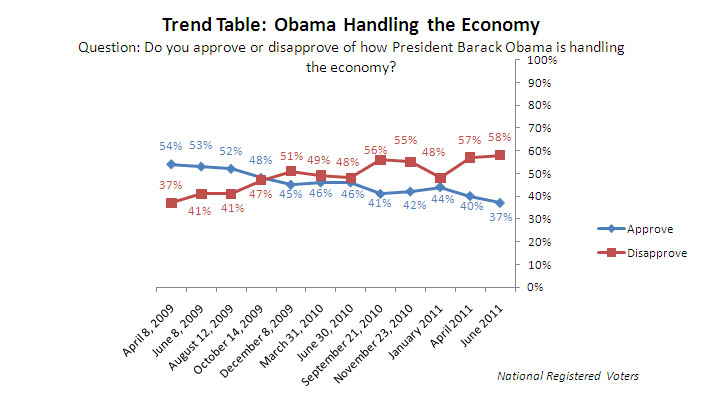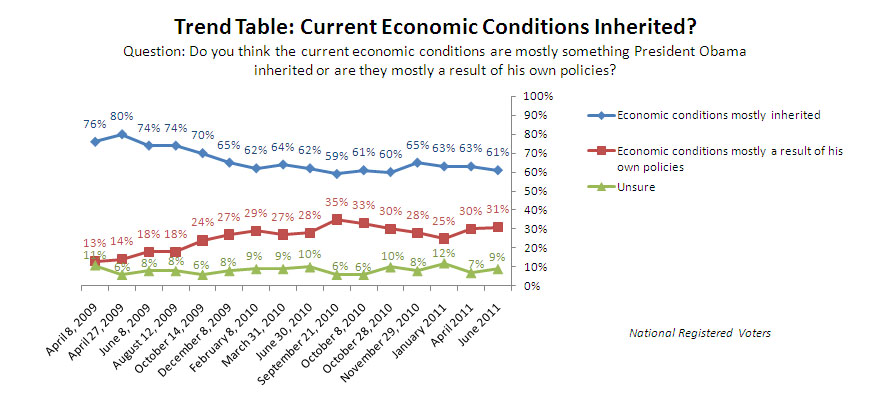According to this McClatchy-Marist Poll, nearly six in ten American adults — 59% — want the federal government to make the reduction of the debt its priority even if the economy is slow to recover.
Capitol Hill politicians should get the hint that Americans are against raising the debt ceiling. They want a balanced budget. They need to find a way to reduce the debt by half in order leave with their means.
Every empire, the Roman Empire included, defaulted on its debt. Why should America be any different? Imperialists always spend more than a working public can afford, which is the reason why so many Americans went backruptcy or default on their loans during the great recession. The American government reflects its people. Well, the current politicians reflect about a third.
About one-third — 33% — want the government to stimulate the weak economy even if it costs more money.
“For the public, it’s all about the debt,” says Dr. Lee M. Miringoff, Director of The Marist College Institute for Public Opinion. ”For Washington, the devil is in the details.”
Looking at party, 79% of Republicans want the debt to be paid down while 15% think stimulating the economy should be the priority. There is less of a consensus among Democrats. Half — 50% — believe the government should focus on stimulating the economy while 45% say the national debt should top the government’s “to do” list. More than six in ten independents — 61% — think the priority should be the reduction of the debt even if the economy rebounds slowly. This compares with 32% who say the stimulation of the economy should be the main issue even if it costs more money.
The McClatchy-Marist Poll reported Americans are still pessimistic about the economy and for good reason: Three in four believe the U.S. is still in recession.
A majority of Americans — 53% — say that, when thinking about the U.S. economy, the worst is yet to come. However, 42% believe the worst is behind us. Six percent are unsure. When McClatchy-Marist last reported this question in April, 57% thought there was more bad economic news to come, 39% said better economic days were ahead, and 4% were unsure.
And, 75% of residents nationally still think the country is in a recession. This compares with one in five — 20% — who say the nation has come out of the recession. Five percent are unsure. In April, similar proportions held these views. At that time, 71% reported the recession was not over, 25% said it was, and 4% were unsure.
To read more, go to the Marist Poll.


